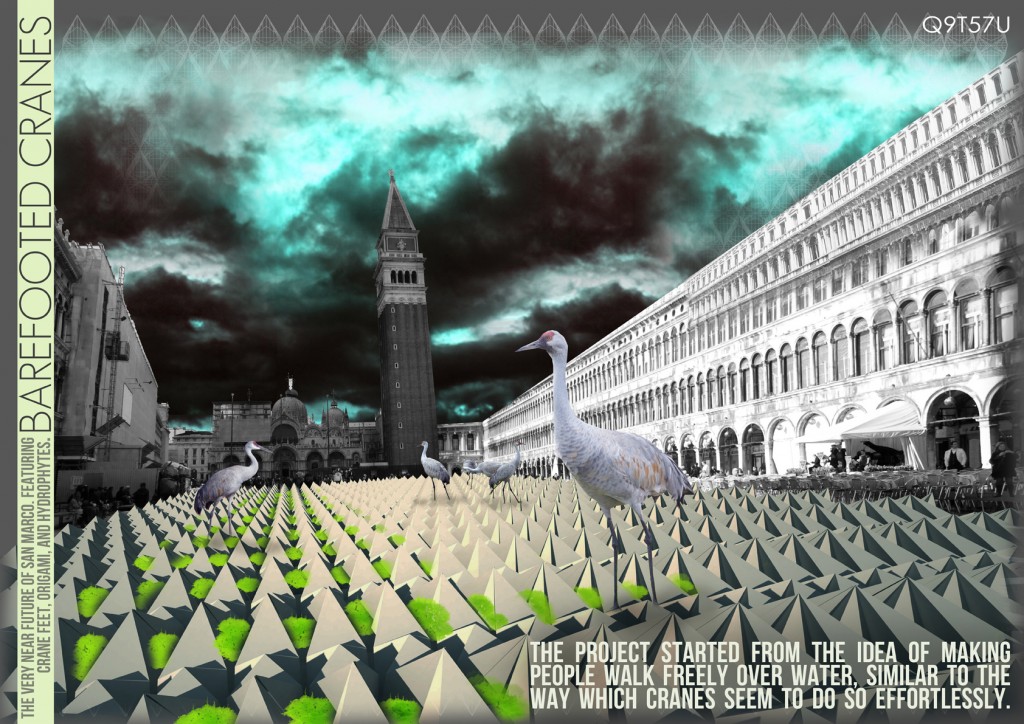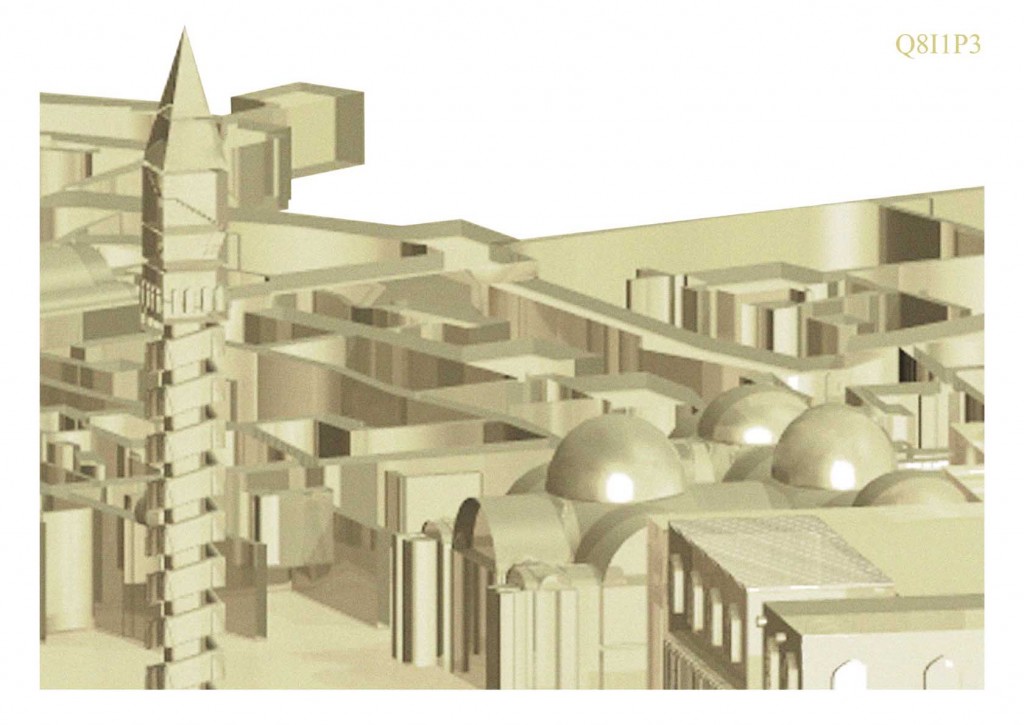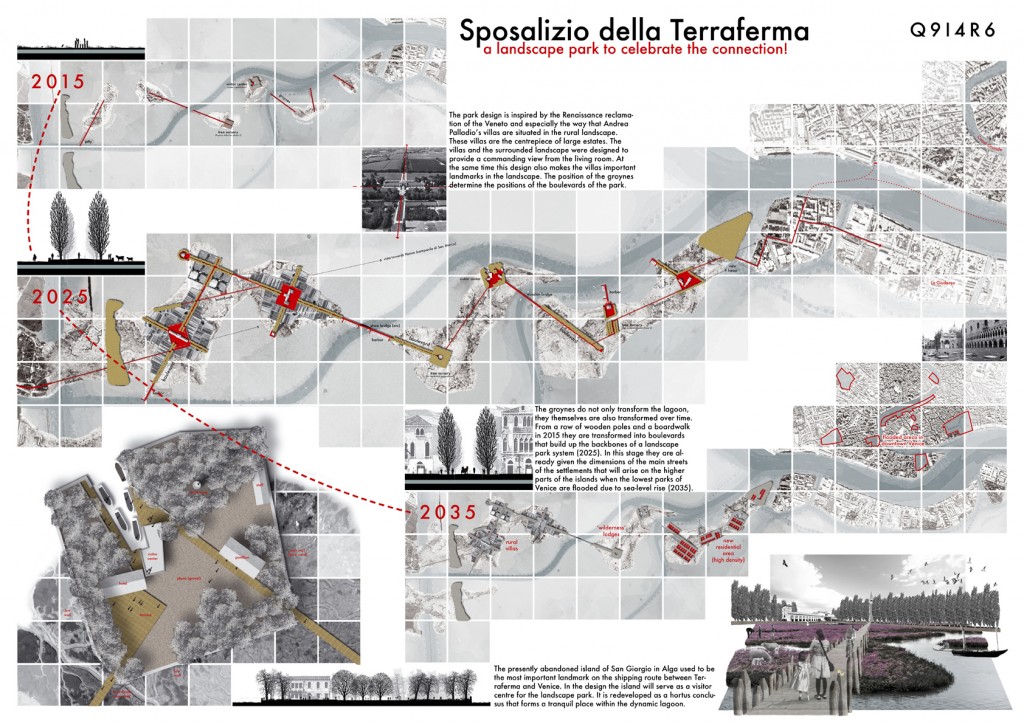Info:
Title: Sposalizio della Terraferma - Code: Q914R6Contest: Venice / 2011
By: J. Hugtenburg
Views: 3674 Likes: 0
Votes:
BJARKE INGELS13 NERI OXMAN8 ELENA MANFERDINI3 MARIA LUDOVICA TRAMONTIN4 BOSTJAN VUGA77.0
Sposalizio della Terraferma
Sposalizio della Terraferma The lagoon, a way of living with nature Venice and its lagoon have a long and strong tradition in coping with the forces of nature. The islands and marshlands of the lagoon has always provides safe and rich habitats. And when the harbours of Torcello silted up in the 14th century, people moved to other islands that were created by that same natural process; sedimentation. From this point of view, the large-scale engineering of the Renaissance that diverted the rivers like the Brenta and the Piave around the lagoon were a crucial mistake in Venice’s history. These interventions deprived the lagoon from the sediment that is today so desperately needed to allow the islands and marshlands of the lagoon to keep up with the rising sea level.
This city vision entry proposes a strategy based on natural processes to secure the sustainable development of Venice and its lagoon. Not by protecting the island of Venice as we know it today, but by promoting the development of new islands on which new and equally unique cities can be built.
River sediment as a fundament for sustainable development
Islands are made of sediment, so a steady supply of sediment is a first requirement for this strategy. In this delta area, the most reliable sources of sediment are the rivers that come down from the Alps. A first step is thus to redirect these rivers back into the lagoon.
Of course, guiding the rivers back into the lagoon after more then five centuries requires some effort. The feasibility of this strategy has been tested for the river Brenta. The Brenta is not only (together with the Piave) the largest river with the highest sediment load, but it is also the river that used to have its mouth closest to the city of Venice. The Brenta was also the first river to be diverted around the lagoon in the year 1457.
An analysis of the catchment of the Brenta shows that with a few adaptations the river and its sediment can reach the lagoon again, roughly following its original course. The present diversion channel can even be used as an overflow to prevent flooding of urban areas during high river discharges.
The sediment that is carried by the Brenta will create wetland areas and new islands along the river’s old course through the lagoon. This development will eventually connect Venice to Terra-ferma (the mainland). Due to the formation of side branches (and some additional dredging) the main navigation routes can still be used by smaller ships.
This development will however take time, and people are notoriously impatient. This project therefore focuses on speeding up the process of sedimentation in order that the ‘Sposalizio della Terraferma’ (marriage of Venice to the mainland) can soon be celebrated!
Speeding up the development of islands
Sedimentation is speeded up by connecting the high sediment concentrations in the main river channel with the shallow areas that surround it. This is done by installing groynes; rows of poles that guide the sediment to the shallow areas where the velocity of the flow is low and the sediment is deposited. The groynes also provide access by boat to the newly formed islands. This intervention will make the islands grow much faster then they would under natural circumstances. As the islands grow over time, they will soon merge to form a basis for a network that connects Venice to the mainland. This creates an alternative overland route to Venice, following the old nautical route that passed by the now abandoned island of San Giorgio in Alga.
A landscape park that connects Venice to Terraferma
In this proposal, the recreational perspectives for celebrating this new overland connection between Venice and Terraferma have been investigated and designed. The result is a wetland landscape park that extends La Giudecca to San Giorgio in Alga and Fusina. The park design is inspired by the Renaissance reclamation of the Veneto and especially the way that Andrea Palladio’s villas are situated in this rural landscape. These villas and the surrounded landscape were designed to provide a commanding view over the estates. At the same time the villas were positioned as landmarks in the landscape. Their main axes were planted with lines of trees. In the proposed landscape park, the functional position of the groynes is translated into the main axes of the park. The centre of the park is San Giorgio in Alga, which is now assimilated by the newly formed islands and is turned into a visitor centre.
Building in the park
When sea level rise pushes through, and the lowest parts of Venice are permanently flooded, the axes of the park will be further developed to form the main streets of new residential areas. This demonstrates how the development of Venice can be sustained on new and higher islands. In the long run the islands of the lagoon will follow the rise of the sea level and chances for development will be available throughout the lagoon.
Info:
Title: Sposalizio della Terraferma
Time: 6 giugno 2011
Category: Venice
Views: 3674 Likes: 0
Tags: Andrea Palladio , Brenta , Hugtenburg , La Giudecca , Piave , Sustainable development , Torcello , Veneto , Venice









